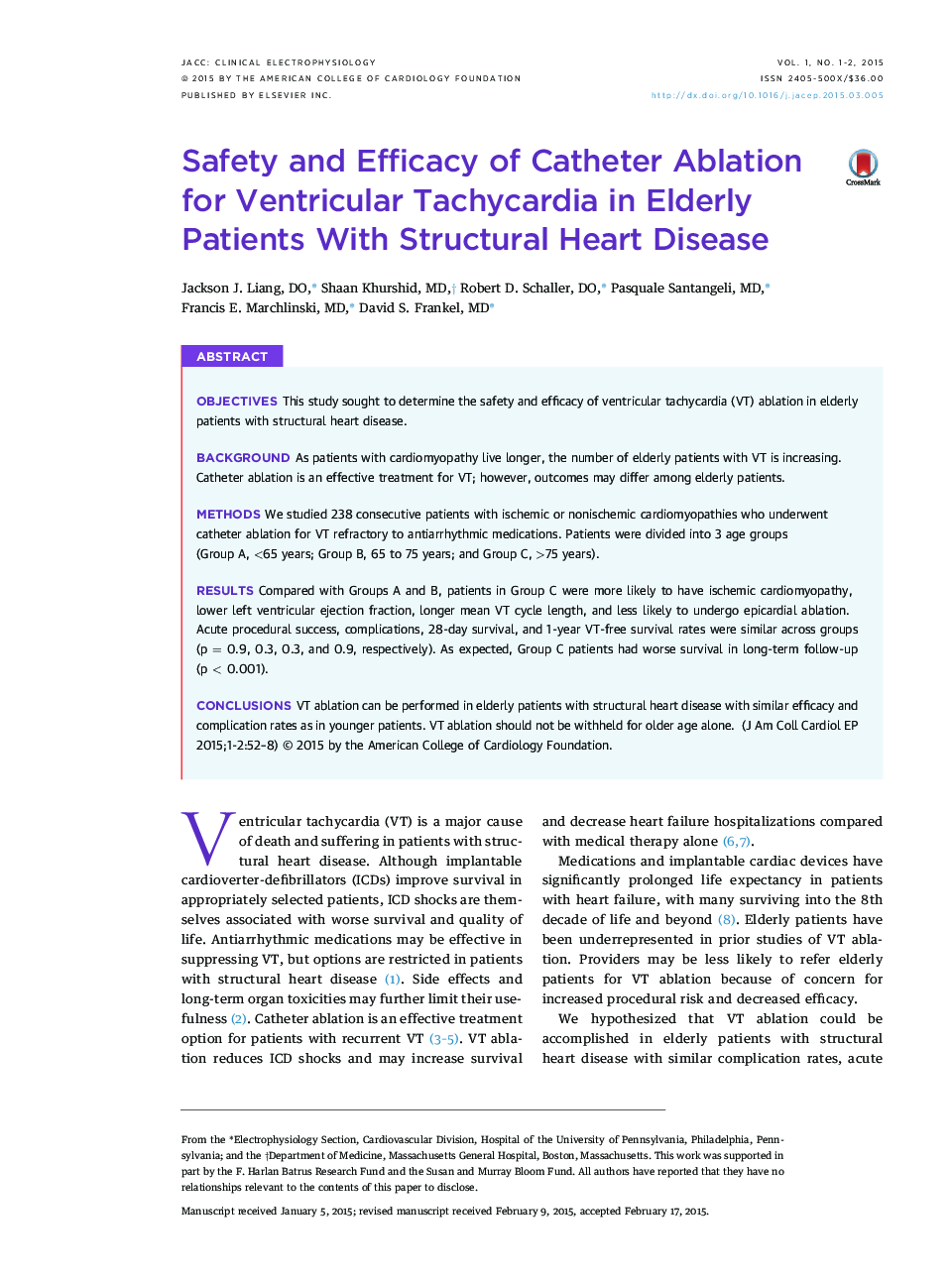| Article ID | Journal | Published Year | Pages | File Type |
|---|---|---|---|---|
| 2942289 | JACC: Clinical Electrophysiology | 2015 | 7 Pages |
ObjectivesThis study sought to determine the safety and efficacy of ventricular tachycardia (VT) ablation in elderly patients with structural heart disease.BackgroundAs patients with cardiomyopathy live longer, the number of elderly patients with VT is increasing. Catheter ablation is an effective treatment for VT; however, outcomes may differ among elderly patients.MethodsWe studied 238 consecutive patients with ischemic or nonischemic cardiomyopathies who underwent catheter ablation for VT refractory to antiarrhythmic medications. Patients were divided into 3 age groups (Group A, <65 years; Group B, 65 to 75 years; and Group C, >75 years).ResultsCompared with Groups A and B, patients in Group C were more likely to have ischemic cardiomyopathy, lower left ventricular ejection fraction, longer mean VT cycle length, and less likely to undergo epicardial ablation. Acute procedural success, complications, 28-day survival, and 1-year VT-free survival rates were similar across groups (p = 0.9, 0.3, 0.3, and 0.9, respectively). As expected, Group C patients had worse survival in long-term follow-up (p < 0.001).ConclusionsVT ablation can be performed in elderly patients with structural heart disease with similar efficacy and complication rates as in younger patients. VT ablation should not be withheld for older age alone.
